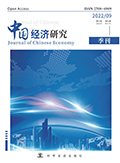参考文献
[1] 陈真亮, 李明华. 论水资源“生态红线”的国家环境义务及制度因应———以水质目标“反退化”为视角[J]. 浙江社会科学, 2015(10): 62-70.

